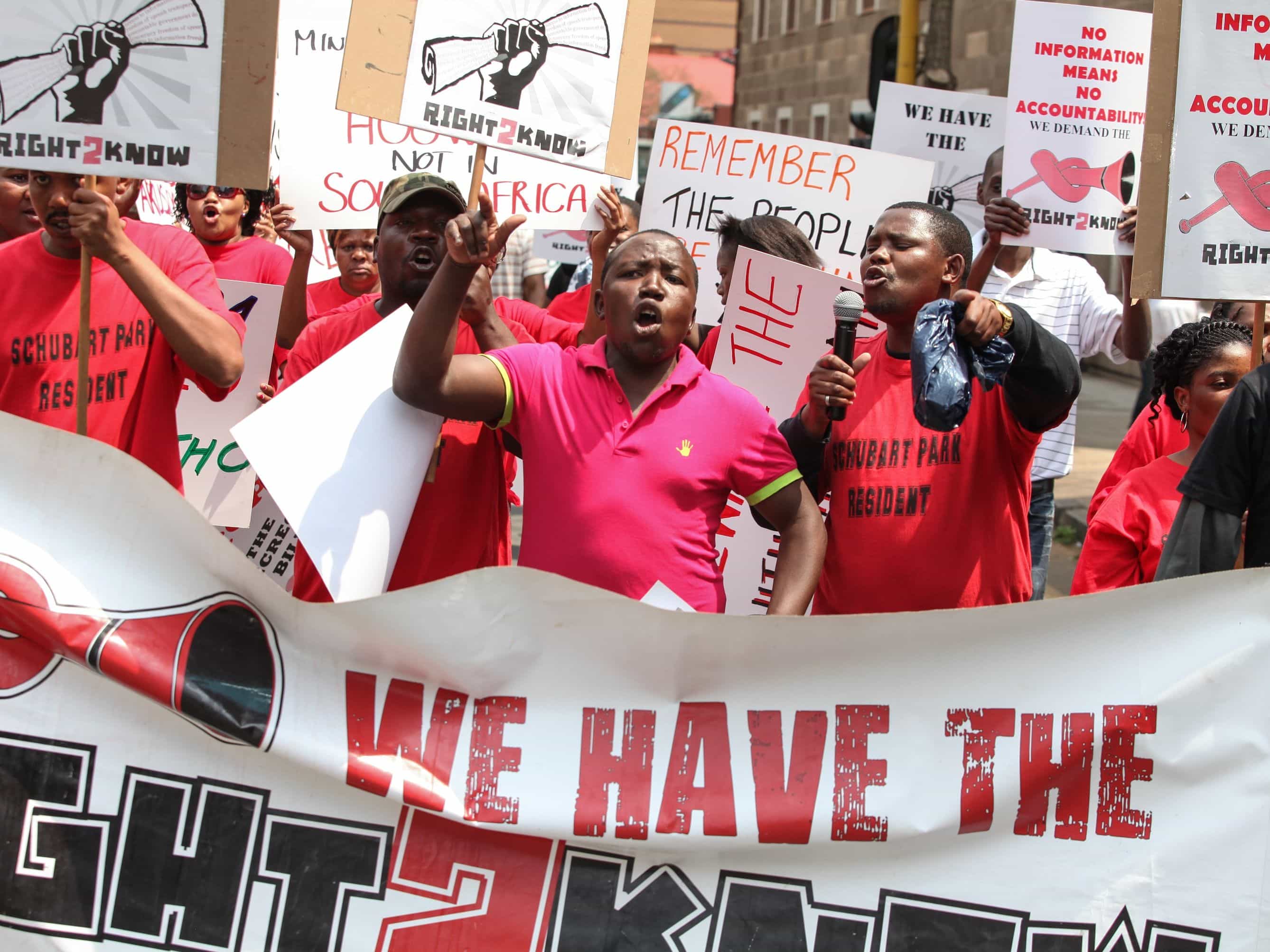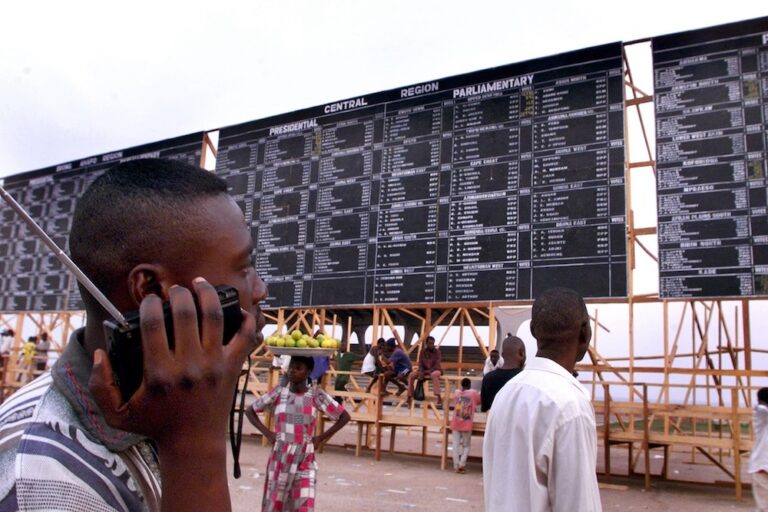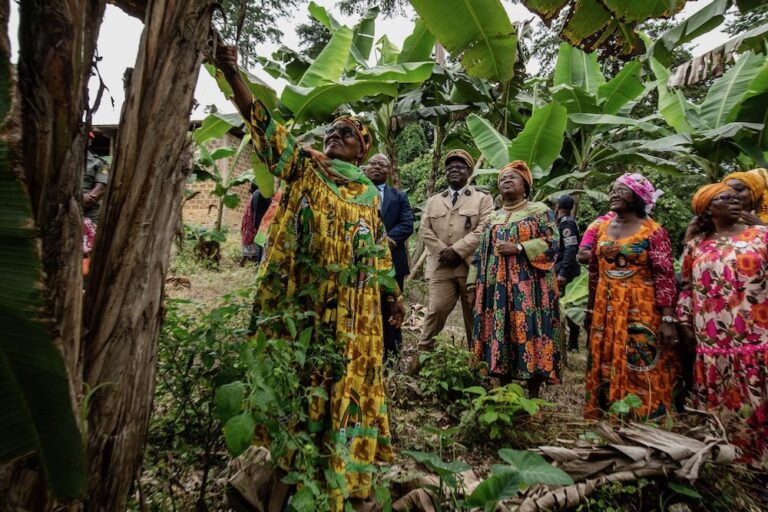Hear how a report by the Africa Freedom of Information Centre has been ramping up conversations about the right to information and other human rights all around the African continent.
Gilbert Sendugwa believes that the right to information is a foundational human right.
Sendugwa is the Coordinator and Head of the Africa Freedom of Information Centre (AFIC), a pan-African network of 35 organizations based in Uganda.
Last September, AFIC released an extensively-researched report called The State of Right to Information in Africa, which looks at 14 African nations and makes some very specific recommendations.
In this IFEX podcast, we’ll speak to Sendugwa about this report. We’ll learn why it’s important and how it’s being used, and we hope to inspire you to find out more.
This podcast is part two of a three-part audio series that looks at the critical issue of access to information in Africa. Click here to listen to part one, “Podcast: Project aims to fight Ebola by improving access to information.” Click here to listen to part three, “An IFEX right-to-information podcast featuring Special Rapporteur Pansy Tlakula.”
To learn more about AFIC’s work, click here.
You can find extended interviews with some of the key players in access to information in Africa here.
We’d love to hear your thoughts on this podcast episode. Feel free to tweet your thoughts to us @IFEX, or share your ideas on our Facebook page.
To learn more about why freedom of information is important, how it is addressed through legislation, and how it can be used to promote accountability and democracy all around the African continent, check out this factsheet by Karen Mohan and Africa Check.
The music in this podcast is entitled “Ceteski,” by NICOCO, and is being used under a Creative Commons License.
Audio Transcript
Caro Rolando: Hi, I’m Caro Rolando, IFEX Section Editor for the regions of Africa, Europe and Central Asia. Welcome to this IFEX podcast. IFEX is the global network of organisations dedicated to defending and promoting free expression. To learn more about our work, visit ifex.org. That’s w-w-w dot i-f-e-x dot o-r-g.
This is part 2 of a three-part audio series that looks at the critical issue of access to information in Africa. You can check out parts 1 and 3 on our website.
In this section, we’ll speak to the head of an IFEX member organisation that took on the enormous task of assessing the state of access to information in Africa in 2014. We find out why the study is important and how it’s being used, and we hope to inspire you to find out more.
Some of you may be wondering why “the right to information” – a term that can sound a bit abstract – matters. To Gilbert Sendugwa, it’s a foundational human right. He believes that every right is empowered by the right to information.
Sendugwa is the Coordinator and Head of the Africa Freedom of Information Centre – a pan-African network of 35 organizations based in Uganda.
Last September, they released an extensively-researched report called The State of Right to Information in Africa, which looks at 14 African nations and makes some very specific recommendations.
We read it, and we’d like to encourage you to read it as well. In order to better understand some the wide-ranging implications of this resource for Africa, I asked Sendugwa how he sees the connection between the right to information and other rights. Just a note here on the audio quality – this interview was conducted over the phone and may sound a little difficult to understand at times.
Gilbert Sendugwa: People need information about a violation so that they can pass through it, and they can enforce their rights.
CR: When people understand their legal rights, they know when they are being violated, and they can access the information they need in order to fight back. This extends even to their ability to stand up for their rights to health and to education.
GS: Through our work, for example, in Uganda, we have seen a number of ways, how people have used the law to enhance their right to health, education, to food.
CR: Civil society organisations also rely on access to information, to be able to expose corruption, share information in the public interest and organise strategic campaigns.
GS: A number of civil society have also said that this is going to be a key resource when they’re engaging the African Commission on Human and People’s Rights, shadow reporting, and reporting to the Commission on the situation nationally.
CR: In the past six months, the report has started to have tangible impacts.
The governments of Malawi and Uganda have indicated they will implement the report’s recommendations, and, at the international level, Sendugwa’s group has been speaking with the UN Sustainable Development Network, asking them to take the report into account when developing indicators for Sustainable Development Goals on the Right to Information.
Perhaps one of the most exciting developments since the launch of the report, is that – in line with the report’s recommendations – Mozambique and Sudan have adopted a Right to Information law.
The report’s strong reception has had a positive rebound effect on Sendugwa’s group as well.
GS: This report has really motivated us. The effect that it has had so far, you know has greatly mobilized our commitment and motivation, you know to participate furthe.
CR: AFIC’S report is an invaluable resource for anyone interested in legislation, civil society initiatives and recommendations on the right to information on the African continent. You can download the report on our website. We really encourage you to read it!
In the next segment of this podcast we look into an intergovernmental organization trying to get governments to adopt access to information legislation all around the continent: The African Commission on Human and People’s Rights.
This podcast was produced by Caro Rolando for IFEX, the global network of organisations dedicated to defending and promoting free expression. To download AFIC’S report, and hear the rest of this series, visit ifex.org. We’d also love to hear your reactions to this series. You can tweet us @IFEX, or find us on Facebook at IFEXorg.



